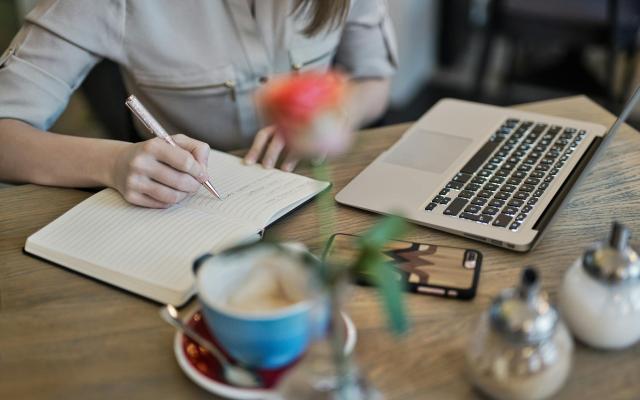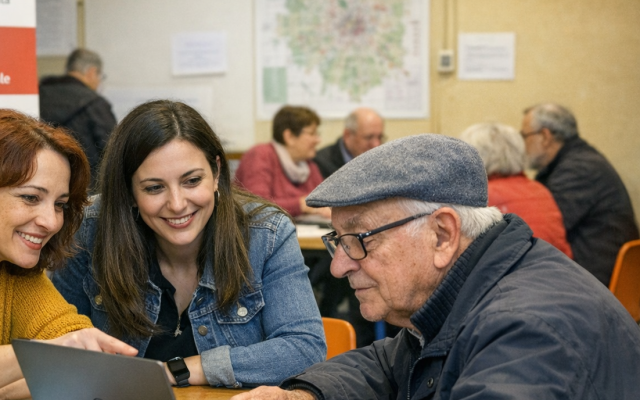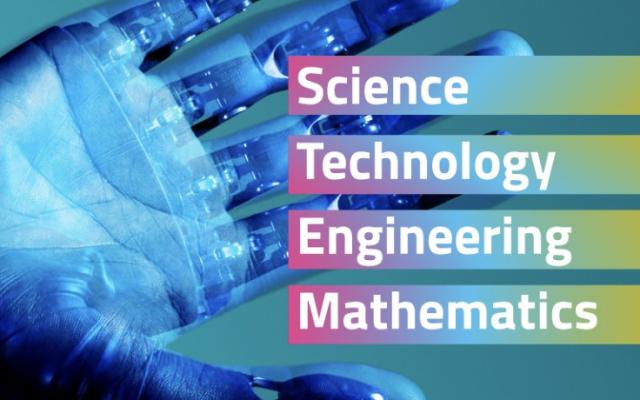Francesco Baroni is specialised in teaching foreign languages. He teaches in professional institutes and collaborates with the Lalizablu Centre in Reggio Emilia to develop inclusive contexts for the sight-impaired and blind. Together with “Our School” teachers, he developed "Venuti da lontano – Come from Afar,” a service-learning course on migration.
This is the 35th instalment of “Our School” Professors. As usual, we share a short self-presentation video and then the interview with researcher Ilaria Gaudiello, who coordinates the works of the open source community of professors and educators.
INTERVIEW
Francesco, let’s speak about you as an innovating teacher. You are an expert on collaborative platforms for teaching foreign languages. You make use of a number of applications to help teachers visualise and share content. You have developed a particular attention to the issue of didactic accessibility in multilingual environments. So, you certainly are not afraid either of novelties or digital tools. How has technology changed the way in which you transmit content, as well as habits to learning and values.
Didactic platforms have turned out to be – first in universities and then in schools – useful tools to reproduce the dynamics of socialisation that were suspended during the pandemic. Last year, sharing didactic content became a pretext for having a debate. The collaborative nature of learning was promoted by ludo-didactic applications. And students revealed great interest in this, stimulated by the use of smartphones during lessons. On-line, as in proximate lessons, teachers can act as facilitators of learning thanks to technology. I understood that the role of teachers may be interpreted as a “director” of lessons. The students are the protagonists.
Last year, you participated in “Our School” with other teachers, to develop a course on service learning. Do you believe that schools are concretely opening up to their communities in this new post-pandemic phase?
The "Venuti da lontano – Come from Afar” Project that was developed with “Our School” colleagues is based on a question: how can we involve schools and civil society in a proposal that will produce significant learning on a planetary issue such as migration? In developing this project, the initial impetus came from the social and linguistic changes that are taking place amongst the new generations.
We should never forget that students are proud citizens and, as such, they are a resource for society. This is why, as teachers, we must be the first to make use of the novelties we observe in their interactions and languages. School still has a long way to go before it achieves a full understanding of the benefits that the wealth in each classroom can have on society as a whole.
On what issues, projects and initiatives would you like to pursue new collaborations with “Our School”?
I have recently been studying didactics for students who are sight impaired. This includes a multisensory approach to knowledge, which has applications in regular didactics, too, as well as the use of assistive technology and Braille. I would like to collaborate on issues related to didactic accessibility.
What reading do you believe is a must for the educational community?
As a teacher who has specialised in language teaching, I would suggest L'educazione linguistica democratica (edited by Silvana Loiero and Maria Antonietta Marchese, Collana BUL, Roma-Bari, Laterza, 2018), a collection of writings by Tullio De Mauro, a beloved author for the Fondazione Mondo Digitale. Language, according to De Mauro, is the primary tool to access knowledge. Therefore, teachers must facilitate learning, starting by promoting the heterogeneity in each class.



